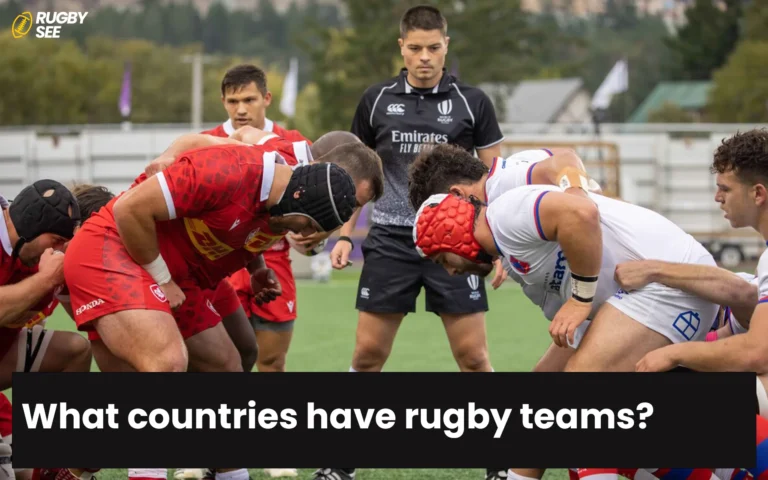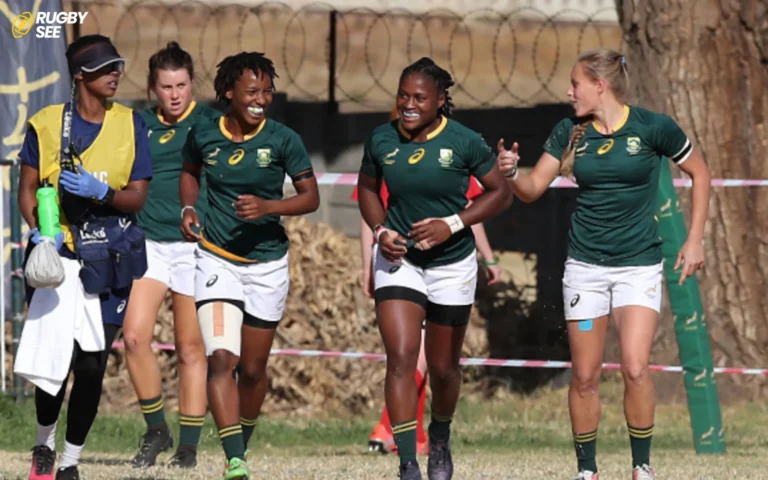The Rugby World Cup stands as one of the most prestigious and widely viewed events in the world of sports. Held every four years, this tournament brings together nations from across the globe to compete for the coveted Webb Ellis Cup. But just how many countries are involved in this grand event?
The Rugby World Cup: A Global Celebration of Sport
First inaugurated in 1987, the Rugby World Cup has grown significantly in stature and popularity since its inception. What began as a tournament featuring 16 teams has expanded to accommodate more nations over the years. The quadrennial event captures the attention of millions of fans worldwide and serves as a showcase of the sport’s diversity and competitive spirit.
Participation Numbers: How Many Countries Play?
As of the last Rugby World Cup in 2019, a total of 20 teams competed in the tournament. These teams are drawn from various regions and continents, representing the best of rugby talent from around the world. However, it’s essential to note that the number of participating countries has varied throughout the history of the tournament.
Historical Perspective: Evolution of Participation
The inaugural Rugby World Cup in 1987 featured 16 teams, including traditional rugby powerhouses such as New Zealand, Australia, England, and France, among others. Over the years, the tournament has seen an increase in the number of participating nations, reflecting the global growth and popularity of rugby and if you want to know about getting Fit in Rugby read Does rugby make you fit ?

In 1995, the Rugby World Cup expanded to include 20 teams, allowing more countries to compete on the world stage. This expansion provided opportunities for emerging rugby nations to showcase their talent and passion for the sport. Since then, the number of participating teams has remained at 20, with qualification processes determining which nations earn the right to compete in the tournament.
Qualification and Regional Representation
Qualifying for the Rugby World Cup is a rigorous process that varies depending on the region. Each continent has its own qualification pathway, with teams competing in regional tournaments and championships to secure their spot in the tournament. For example, nations in Europe participate in the Rugby Europe Championship, while those in Oceania compete in the Pacific Nations Cup.
The qualification process ensures that the Rugby World Cup represents a diverse range of countries and regions, showcasing the sport’s global appeal. It also provides opportunities for lesser-known rugby nations to gain exposure and experience at the highest level of competition.
Impact of Global Participation
The inclusion of multiple countries in the Rugby World Cup has had a significant impact on the sport’s development and growth worldwide. It has helped to popularize rugby in regions where it was previously less recognized and has contributed to the expansion of grassroots participation and infrastructure development.
Furthermore, the diversity of participating nations adds to the tournament’s appeal, attracting fans from different cultures and backgrounds. The Rugby World Cup serves as a platform for fostering international camaraderie and sportsmanship, transcending geographical boundaries and uniting nations through the shared love of rugby.

The Future of Rugby World Cup Participation: Trends and Possibilities
Looking ahead, the Rugby World Cup is poised to continue its trajectory of growth and expansion, both in terms of participation and global reach. Several trends and possibilities may shape the future landscape of the tournament’s participation:
1. Increased Globalization: As rugby continues to gain popularity in non-traditional rugby nations, we can expect to see a more diverse range of countries participating in future Rugby World Cups. Emerging rugby nations in regions such as Africa, Asia, and the Americas are investing in the development of the sport, which could lead to greater representation in the tournament.
2. Expansion of the Tournament: There have been discussions about expanding the Rugby World Cup to accommodate more teams in the future. A larger tournament could provide opportunities for additional countries to compete and further promote the growth of rugby on a global scale. However, any expansion would need to be carefully considered to maintain the integrity and competitiveness of the event.
3. Development Initiatives: Rugby governing bodies, including World Rugby, are actively involved in initiatives to promote the sport’s development in emerging markets. These efforts include investment in grassroots programs, infrastructure development, and capacity-building initiatives aimed at nurturing talent and expanding participation. Such initiatives will play a crucial role in widening the pool of competitive nations in the Rugby World Cup.
4. Regional Competitions: Regional competitions and tournaments serve as important pathways for countries to qualify for the Rugby World Cup. These competitions not only provide valuable match experience but also help to raise the standard of rugby in different regions. Investing in the development of regional competitions can contribute to the overall growth and competitiveness of the sport.

5. Inclusion of Women’s Rugby: The growth of women’s rugby is another key trend that could impact the future participation in the Rugby World Cup. As women’s rugby gains momentum globally, we may see an increase in the number of countries competing in the women’s tournament. This expansion would further enhance the diversity and inclusivity of the Rugby World Cup.
Conclusion
The Rugby World Cup continues to be a pinnacle event in the world of sports, attracting nations from around the globe to compete at the highest level. As the tournament evolves, we can expect to see greater diversity, inclusivity, and competitiveness, reflecting the growing popularity and global appeal of rugby. By embracing these trends and possibilities, the Rugby World Cup will continue to inspire and unite rugby fans worldwide for generations to come and if you want to know about being Strong in Rugby Does rugby make you strong?
In conclusion, the Rugby World Cup features 20 countries competing for glory on the global stage. This diverse representation reflects the widespread appeal and growth of rugby worldwide. As the tournament continues to evolve, it will likely see further expansion and inclusion, further cementing its status as one of the premier events in international sports.










